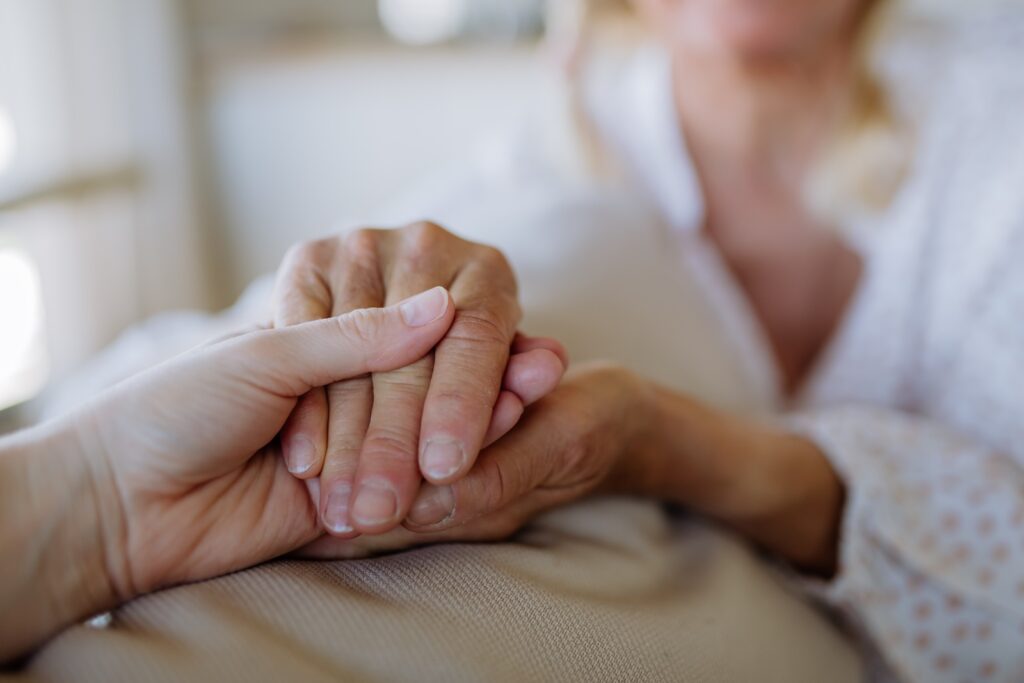16 Guidelines in Somerset: Discussing, Creating and Intuition for Wellbeing

One thing that we at the Foundation for Developing Compassion and Wisdom (FDCW) are passionate about is encouraging communities of practice where people come together to share, discuss and support one another in developing their compassion and wisdom. We have a wide range of resources available to support these communities.
The 16 Guidelines for Life offer a powerful framework for personal growth and community connections. Rooted in universal values, they encourage self-reflection and mindful living. In Somerset, England, Nick Durnand led a 16 Guidelines-inspired series of sessions at the Saraswati Buddhist Group, creating an environment for open discussion, creativity, and personal wellbeing.

Bringing the 16 Guidelines to Life
In February, Nick ran a four-session course, each exploring four of the Guidelines. Each 90-minute session followed a structured format, beginning with a welcome and check-in, followed by reviewing agreements and discussing the aims of the course. Participants reflected on the previous week’s discussions, explored four of the Guidelines in detail, and engaged in pair and group discussions. The session concluded with a guided meditation, reflections, and informal social time with tea and coffee.
Expanding the Vision
As the course progressed, Nick noticed the group’s enthusiasm and wondered how to sustain their interest. He considered different formats for the future, including Sharing Circles (discussing topics inspired by the Guidelines), a Mindful Art Course (using creative expression as a meditation practice), or extending the course with more in-depth sessions on each Guideline.
Nick personally found mindful art to be a powerful practice, helping cultivate inner peace and mental clarity. He hoped to share this process with others and foster a therapeutic space for creative exploration.

A New Ongoing Structure: Three Rotating Sessions
The group decided to meet every Monday morning for two hours, alternating between three themed sessions:
- 16 Guidelines Deep Dive – Exploring one Guideline in depth per session.
- Speaking Circles – Each person shares their thoughts uninterrupted, while others practice deep listening.
- Mindful Art – Engaging in silent creative practices such as clay modelling, drawing, or painting, followed by group reflection.
Every session, regardless of theme, begins and ends with a personal check-in, a short breathing meditation, and a check-out, reinforcing a mindful and structured approach.
The Ripple Effect of Wellbeing
The group has now grown to nine members, fostering a sense of community and shared purpose. Through discussion, listening, and creative expression, participants experience increased wellbeing that extends beyond the sessions into their daily lives.
Nick sees his role as a facilitator rather than a leader, allowing the group’s natural energy to shape its evolution. He remains open to the direction it may take, ensuring flexibility in response to the members’ needs and interests.
The Saraswati Study Group’s journey with the 16 Guidelines demonstrates the power of mindful discussion and creative exploration in fostering personal growth and community wellbeing. As the group continues to evolve, its members embrace the philosophy that personal transformation ripples outward, enriching the lives of those around them.
For those interested in bringing the 16 Guidelines into their own communities, Nick’s experience offers an inspiring model of how structured yet flexible engagement can lead to lasting impact.

Foundation for Developing Compassion and Wisdom (FDCW)
At FDCW, we are committed to a more compassionate, wiser world. We provide resources, courses and training to develop qualities such as kindness, patience and honesty – qualities that are essential for meeting the challenges of the world we all share.
The Foundation for Developing Compassion and Wisdom (FDCW) was established as a global charity based in London in 2005. Since then, we have provided secular training, programmes and resources across many sectors of society – schools, universities, hospices, workplaces, healthcare, youth groups and community centres. Our courses have reached thousands of people across the world through our dedicated and growing network of facilitators in more than 20 countries.
Support our Work
As a non-profit organization, FDCW relies on donations like yours to continue producing valuable resources and hosting events. You can support us by sharing our newsletter, following us on social media, and making a donation. Every contribution, big or small, helps us in our efforts and we truly appreciate it.




